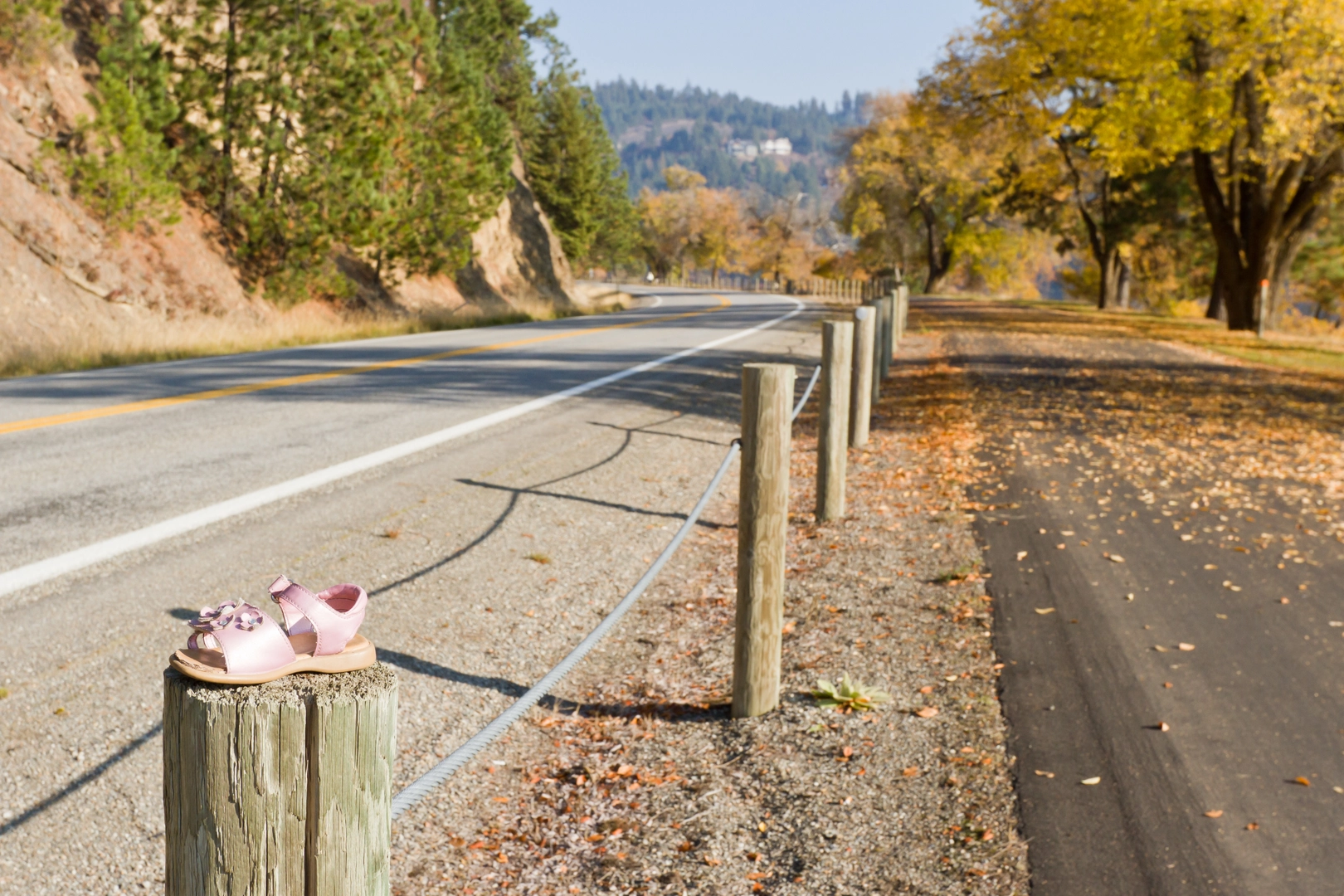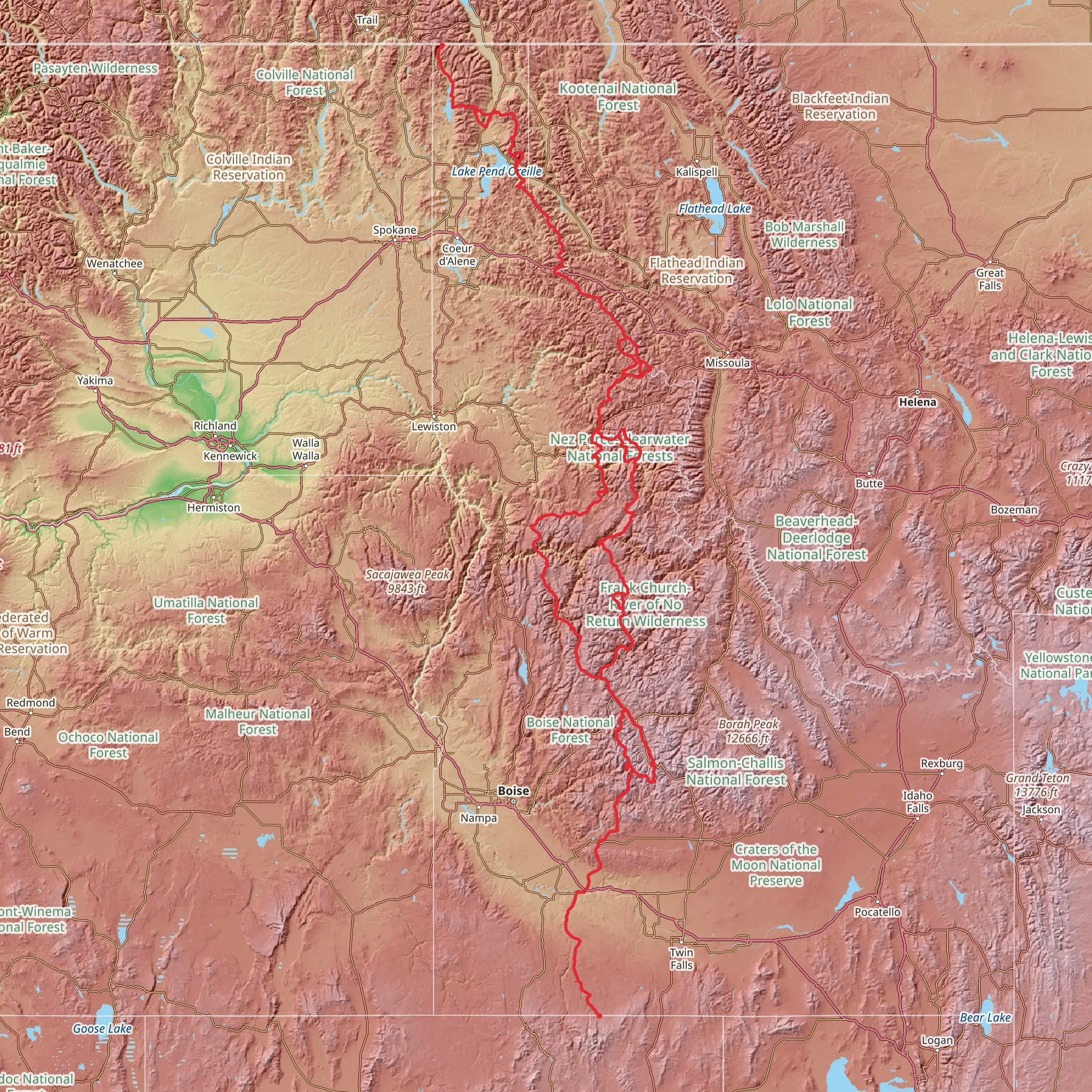Download
Preview
Add to list
More
1422.7 km
~83 days
32629 m
Multi-Day
“Embark on the Idaho Centennial Trail for an epic traverse through Idaho's wild heart, demanding preparation and resilience.”
Spanning approximately 885 miles (1423 kilometers) and with an elevation gain of around 107,000 feet (32600 meters), the Idaho Centennial Trail is a challenging and rewarding long-distance hike that traverses the diverse landscapes of Idaho. Starting near the remote region of Owyhee County, the trail head can be accessed by driving to the nearest significant landmark, Murphy Hot Springs, which is a remote location best reached by a sturdy vehicle due to the rough roads.
Getting to the Trail Head
To begin your journey on the Idaho Centennial Trail, you'll likely be traveling to Boise, the capital city of Idaho. From Boise, you can rent a car and drive approximately 100 miles (160 kilometers) southwest to reach the trail head near Murphy Hot Springs. Public transportation options are limited in this remote area, so a personal vehicle is recommended.
Navigating the Trail
The trail is a point-to-point hike that requires thorough preparation and navigation skills. Hikers should plan their route using HiiKER, which provides detailed maps and GPS coordinates to assist with navigation. The trail is not always well-marked, so having a reliable navigation tool is essential.
Landmarks and Natural Features
As you embark on the Idaho Centennial Trail, you'll encounter a variety of landscapes including high desert, rugged canyons, alpine forests, and river valleys. The trail offers a chance to explore the Frank Church-River of No Return Wilderness, the largest contiguous wilderness area in the Lower 48 states, and the scenic Sawtooth Range.
Wildlife and Flora
The Idaho Centennial Trail is home to an abundance of wildlife. Hikers may spot elk, deer, black bears, and even wolves. Birdwatchers will appreciate the variety of avian species, including hawks and eagles. The trail also winds through areas of rich flora, with wildflowers blooming in the spring and summer months.
Historical Significance
The trail passes through regions steeped in history, from Native American heritage to the early mining and logging industries that shaped Idaho's development. Hikers will learn about the state's past as they traverse historical sites and old settlements.
Trail Challenges
The difficulty of the Idaho Centennial Trail should not be underestimated. With significant elevation changes, remote sections without easy access to resupply points, and the potential for extreme weather conditions, hikers must be well-prepared. It is recommended to carry a water filter, as water sources may be scarce in certain areas, and to plan for food drops or caches.
Seasonal Considerations
The best time to hike the trail is from late June to early September, when the snow has melted in the higher elevations and the weather is more stable. However, hikers should be prepared for sudden weather changes and potentially cold temperatures at higher altitudes, even in summer.
Permits and Regulations
Certain sections of the trail may require permits, especially when passing through designated wilderness areas or national parks. Hikers should check the latest regulations and secure any necessary permits before setting out on their trek.
Conclusion
The Idaho Centennial Trail offers an epic journey through the heart of Idaho's wilderness. It is a test of endurance, navigation, and self-sufficiency, providing an unforgettable adventure for those who take on its challenge. With careful planning and respect for the natural environment, hikers will find this trail to be a remarkable experience.
What to expect?
Activity types
Comments and Reviews
User comments, reviews and discussions about the Idaho Centennial Trail, Idaho.
4.47
average rating out of 5
17 rating(s)

